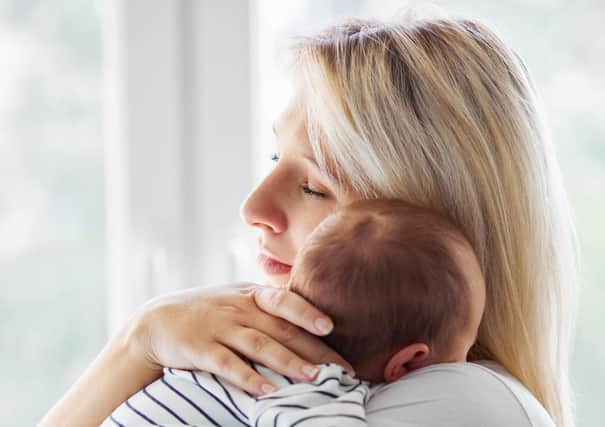How to survive lockdown if you are a new mum


Becoming a mother, particularly for the first time, is a life-altering, hugely emotional, and physically and mentally challenging time. So what about during a pandemic? Hundreds of thousands of women will give birth while the coronavirus crisis rumbles on – and the weeks and months postpartum won’t be how they envisioned early motherhood, or the early stages of their child’s life, either. At a time when women are already at a higher risk of mental health issues, how does the crisis and lockdown impact this already vulnerable group?
“The first few weeks and months postpartum can a very overwhelming and vulnerable time for new parents,” says Siobhan Miller, founder of the Positive Birth Company and author of Practical Ways To Make Your Birth Better. “We’re hearing from new mums every day who are really struggling with lockdown and the social distancing restrictions in place.”
Advertisement
Hide AdAdvertisement
Hide AdShe says this can particularly be the case for first-time mums, who are navigating early motherhood without the physical support of wider family and friends, and for example, the “reassurance they need from their own mothers, who they’d anticipated being involved”.
As Dr Will Dooley, obstetrics and gynaecology doctor and speaker at The Baby Show, adds: “Isolation and lack of support are known risk factors for poor maternal mental health.”
On top of this, things medical professionals ordinarily advise to help postpartum women – like getting out of the house, spending time with loved ones, meeting other new mums and going to baby classes – aren’t accessible now.
“There’s also a sense of loss regarding what new mums had expected the postpartum period to be like,” says Miller. “It’s period of life that cannot be brought back.
Advertisement
Hide AdAdvertisement
Hide Ad“These feelings of loss and grief can be very distressing, particularly at a time when new mums are so emotionally vulnerable in the early postnatal weeks.”
Pablo Vandenabeele, clinical director for mental health at Bupa UK Insurance, says: “One in 10 women are thought to experience postnatal depression, but in the current lockdown situation feelings of anxiety and depression may become heightened. For new mothers experiencing it, the uncertainty and isolation of lockdown could make anxiety, insomnia or low moods even worse.”
There is also a danger right now that postnatal depression is missed, and help isn’t sought because women feel less able to seek it when medical services are stretched or don’t seem as accessible.
Vandenabeele says: “It’s important to look out for any symptoms of more significant mental health issues, such as postnatal depression, and try not to dismiss them as being related to the lockdown situation.”
Advertisement
Hide AdAdvertisement
Hide AdSymptoms can include a lack of appetite, not being able to sleep due to worry or stress, feeling low and tearful, problems concentrating and feelings of guilt and worthlessness.
There’s also perinatal anxiety – high levels of anxiety during pregnancy or in the year after birth. Miller says symptoms include: “Constantly worrying about the pregnancy or baby’s wellbeing, feeling on edge, having a sense of dread, difficulty concentrating or racing thoughts, or engaging in behaviours to try and reduce negative thoughts (like constantly checking they baby is breathing).
The message is: don’t delay in getting help.
Tell your GP or midwife – even if you’re isolating, they’ll be able to do a consultation over the phone and get you the help you need.
“It’s worth remembering that midwives recommend you should spend two weeks at home resting after birth; one week in bed, one week on the sofa.
Advertisement
Hide AdAdvertisement
Hide Ad“Too many women feel the pressure to be up and about, hosting guests mere days after giving birth,” Miller adds.
“You can now use this precious time to relax, get to know your baby, bond as a new family and master those new skills – all guilt-free. Try and focus on the positives where you can.”
Comment Guidelines
National World encourages reader discussion on our stories. User feedback, insights and back-and-forth exchanges add a rich layer of context to reporting. Please review our Community Guidelines before commenting.